Former POW Tom Mathews |
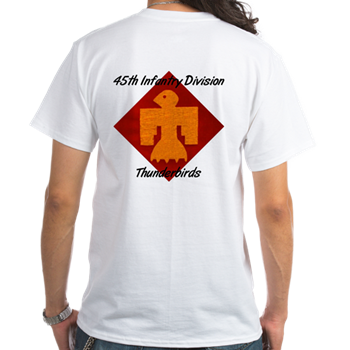
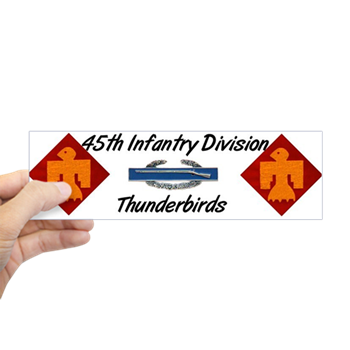
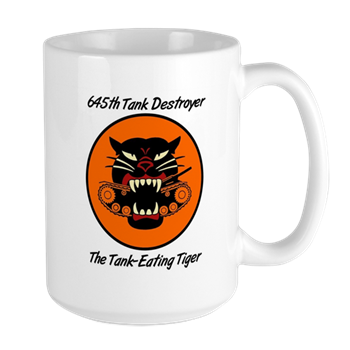
Memories of war and sacrificeBY JENNI VINCENTThe Dominion Post of Morgantown, W.Va.Tommy Mathews was interviewed by Libby Smith on June 29, 2001 Edited
by: Eric Rieth Even
though he's a former prisoner of war, Grafton native Tom Mathews, 75, doesn't
have any regrets about serving his country. |
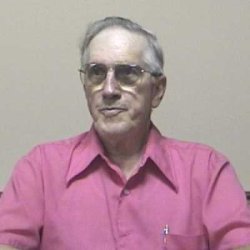 |
Tom
Mathews June 29, 2001 |
Now
retired after working for the state Employment Security Unemployment Compensation
Division for 37 years, Mathews devotes a lot of his time to veterans' causes.
He represents the Barbed
Wire Mountaineers Chapter One (serving north-central West Virginia) and just recently
stepped down as commander of the state's POW organization.
A
1942 Grafton High graduate, Mathews worked at the now-closed Hazel Atlas plant
for about a year until he was drafted at the same time several of his friends
also received a letter from the federal Selective Service, he said.
Things
happened quickly after being inducted 12 August 1943, Mathews said:
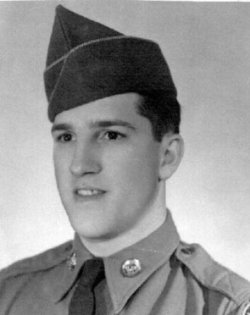 |
"In
August of '43 I took my physical for the service and I left Grafton on Sept. 2,
1943," he said, recalling his early Army training in Ohio and in Camp Blanding,
Florida.
I think back
years later and try to remember things that happened. I remember going over in
a ship. We ran into rough weather. I almost washed overboard when I was on guard
duty. I remember going through the Strait of Gibraltar and how beautiful the Spanish
side was. We also stopped in Sicily one day. When they took us up through the
Straits of Messina, between Sicily and Italy, I remember how pretty that was.
It was very beautiful on both sides. You wouldn't think there was a war going
on. When we got up close to Naples, Mount Vesuvius was erupting. This was in late
March, 1944. That is a sight I'll always remember.
"Mount Vesuvius was erupting, we could even see it from the ship. There was lots of bright red fire and smoke coming out," he said with a chuckle. "It was something like you would have seen on television but there it was, happening right in front of us."
"I ended
up in the 45th Division -- the Thunderbirds," Mathews said. "We were
infantry, we were ground forces."
Later
that spring, he was sent to Anzio Beach head and , Company E, 180th Infantry Regiment.
It was important to keep German forces from infiltrating the area, Mathews said:
"The Germans were awful
close," he said. "Maybe you've heard of the big Bertha guns Germany
had? Well, those were big railroad guns and they kept throwing those big shells
over. Most of them landed in the harbor, but you never knew when one would come
closer."
Mathews
said that on May 24, they started their march to Rome which was also intended
to push back the German forces. "We went as far as Rome and then back to
below Salerno, Italy for amphibious training. On August 15, 1944, I was in the
invasion of southern France."
Later
that summer Mathews said; 'However, as they began moving through southern France
in early September, the German resistance increased and that proved to be a turning
point in Mathews' life, he said.
On September 12, 1944, I was captured somewhere around a little town called Baume Les Dames, France. It was close to Belford Gap.
Yes. It's hard to explain. We had been moving up pretty fast. The day before I was captured, one of our squads from my platoon was sent out on a reconnaissance. They were cut off and unable to get back. We moved up to this one place. Since we were short one squad, they put us in the rear where they thought would be the least chance of anything. There was a big field between us and where the rest of the company was. About six o'clock the next morning they hit us unsuspectingly. They captured they successfully captured approximately nine or 10 other soldiers along with Mathews; and killed several others. That's how it happened. It was just at daylight. You could hardly see or anything. There was no way we could get back to the rest of our company or could they help us.
Before
being sent to different places, Mathews said:
"They was on us quick. It was either be killed, captured or wounded," he said. "My best friend's sergeant was killed. As for those of us who were captured, They took us down over a hill someplace in the woods. I had no idea. There was an old schoolhouse. They kept us there all day long. They gave us something to eat. That night they moved us out by truck to another town where we were interrogated. What that town was I couldn't tell you. I have no idea.
We
were in that old schoolhouse for that one day. Then they moved us out at night.
They took us over to Belford Gap I mentioned. There must have been fifteen or
sixteen of us. There were some other men from other companies. The room wasn't
wide, but it was long. They kept us in there for almost a week. It was up over
a train station. They began to interrogate us and took us up to a spot overlooking
the rail yards." Tommy Mathews: Right now it's very hard to remember. They
knew who we were. They knew different things about us that we didn't think they
knew, but most of us had our billfolds and stuff. They knew a lot of stuff. Their
intelligence was very good. They didn't interrogate us real heavily. Later they
moved us out by train up through Mulhaus, Strasbourg, and on up to Limburg. That
was all by box cars.
The
prisoners were later taken by train -- in box cars -- to Germany's Stalag 12-A,
he said. After about three weeks there, they were transferred to Moosburg, which
is Stalag VII-A near Munich, Mathews said. . I was there from October until February.
I was put on a permanent work detail in a little town called Landshut, Germany.
It's between Regensburg and Munich. I worked there, forty-nine of us in a group,
until I was liberated on April 29, 1945. Prior to going on the permanent work
group, I went on work details into Munich and other places around. They had us
doing different jobs around the railroad station and some of the buildings. They
kept us busy.
He would ultimately be held captive for 7 1/2 months, Mathews
said.
There was one
bright spot: Mathews and another man from his company, Eugene Day, of Ohio, were
kept together throughout their ordeal, he said.
Not
only did they serve as POWs, they also kept in touch after they returned home
and Day even visited Grafton once, Mathews said.
"After
we were captured they used to take us into Munich on work details -- sometimes
we'd work down around the railroad station cleaning up -- in all kinds of weather,
it was a real cold winter that year," he said.
After
being put on a regular work detail; I think our work group was number was 4125,
by February 1945 Mathews said he had been moved to a different building that was
an improvement and that he got better food. We were in a little town called Landshut
where we worked with the people, like in a post office, loading and unloading
box cars of parcel post packages. The packages had cookies and stuff like that
in them. Some of us would be assigned to be put on a bus. We'd take that to the
post office up town. We never rode inside the bus. We always rode on the fenders
or on the roof because we had to watch out for straffing planes. That's about
all I can tell you about that. The people we worked with treated us real nice.
In fact, we got to be friends with some of them.
Yeah. We had to get up
in the mornings, go to work, and come back in the evenings to the barracks. If
there were air raids they let us out. We went up over the hill, on top of the
hill. Naturally, we went with the guards. They didn't make us stay any time there
were air raids.
Not all
of the Germans were harsh to their prisoners, said Mathews, who still vividly
remembers the individuals that befriended them -- sometimes at great personal
danger to themselves, he said.
"We
had a man who was in charge of our work group and he had a secret radio, so he
would keep us informed about what was happening with the Allied forces -- which
he wasn't supposed to do," Mathews said. "But he was a good person and
he treated us nicely, saw that we weren't mistreated.
"Actually I was very fortuntate that I got on that work crew, because at one time before that I was down to about 110 pounds and I couldn't keep warm," he said.
"Well, as I look back over the years and think about it, I was pretty fortunate with the treatment I got. I never received any rough treatment or abuse. Other men did. I feel fortunate that I was captured by the people I was captured by and where I was. They were humane towards us. About the only thing - lack of food - naturally. You lose a lot of weight. You worry. Sometimes you're just to the point you're so tired you don't know what to think."
Tommy Mathews: "Well, it's hard to explain. At that time we moved so fast you were tired. You almost prayed that you'd be killed, captured, or wounded. You were so tired you could hardly move. It's hard to explain. You're scared. You don't know what is going to happen. That's about the only way I can explain it."
There
was one time I wanted to tell you about. In March, 1945 the only time I can remember
the town actually being bombed, we went through a pretty heavy bombing raid that
day. A lot of us took off up toward the town. They let us take off with the understanding
we would come back after it was over and not try to escape. We knew if we tried
to escape it would make it rough on the guys behind. We all came through it okay.
Mathews was released April 29, 1945, but even that wasn't easy.
A couple of days before I was released, this colonel came down from Regensburg. He told us that when the troops moved into Regensburg to come toward Lanshut, there would be an air alarm signal. We could either stay there or we could go with the guards. That happened a couple of nights later. They were supposed to leave guards with us. In fact, the man in charge of us, which was very good to us, was supposed to stay with us. But they made him go and all the guards go. We were on our own.
We were
trying to make our way out of town to the encampment. We knew the general direction
we were supposed to go. This lady and a friend of hers met us. It was so dark
you could hardly see."When we were leaving, it was so dark that you couldn't
see your hand in front of your face -- we went down the street holding onto each
other's shoulders," They took us out to an old house. We spent the night
there while they made arrangements. After spending another night outside, Mathews
said his group got what they had been waiting months for -- their freedom. One
of the regular captains with the German Army met us at the house. He took us to
a big encampment - a tent that they had set up. That evening about six o'clock
we looked up and we saw something on the hill. We kept saying, "It looks
like it's moving." We thought it was trees. It kept moving. It was the 1st
Armored Division. They came down and liberated us. The lieutenant in command talked
to us. They said they were expecting a counter attack. He said we could either
stay there or we could do what we wanted to. My three friends and I just looked
at each other. We picked our stuff up and started toward Regensburg. We spent
that night in a barn. The next morning they picked us up with trucks and took
us into Regensburg to the airport. It used to be the Messerschmidt Plant which
was nothing but a shell with window frames. We stayed there for about a week.
Naturally, they brought food and stuff into us. Then they flew us into Paris.
From Paris to Lehavre and then home.
Although he now freely talks about his POW experience, Mathews said that wasn't always the case because he worried that others would think he'd done something wrong to become a captive or let America down.
I returned
to Grafton. I finally found a job in April, 1946 which I remained on for thirty-seven
years. Also, I joined the Reserves. I was called up during the Korean War. I ended
up on Okinawa at that time. I didn't have any combat duty, but I worked in AG
sections.
The thing that hurts the most is my dad died on January 10, 1945.
I didn't know it until I got home in June. That hurt the most not being here to
tell him "Goodbye". That stays on my mind an awful lot. Mainly in the
last two years. Alexander Church Mathews.
Yeah. When I talked to my mother
from Fort Meade, Maryland to tell her I was coming in the next day, she said,
"I have something to tell you. Do you want me to tell you now or wait until
you get home?" I said, "You wait until I get home." I knew either
my dad was dead or he was real sick. When I went in the service, I didn't know
his health was as bad as it was. Being the youngest in the family, they didn't
tell me everything.
Sharing
his experiences and helping other veterans is important to Mathews, a founding
member of the color guard who has participated in 836 military funerals, he said.
"Even with what
I went through, I know that some of the men in other places had it a lot worse
than I did," he said. "And by never forgetting, that's one way to honor
their service."
last revision